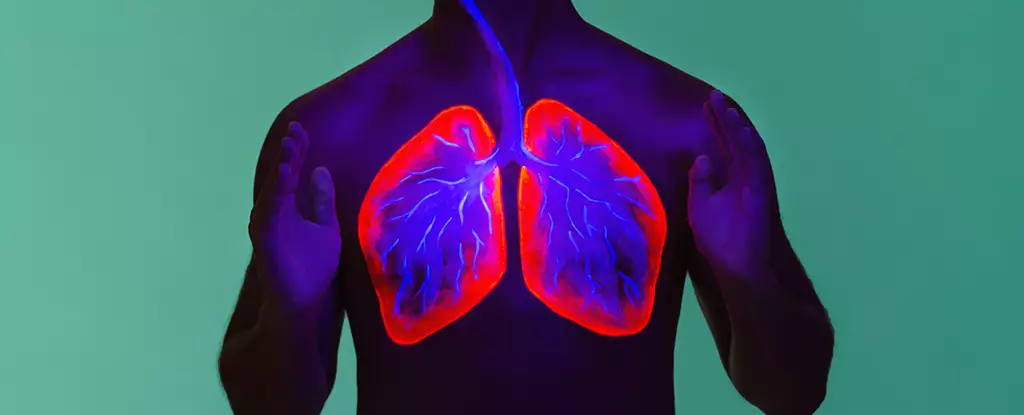The conversation surrounding lung cancer has predominantly revolved around well-known culprits like smoking and environmental pollutants. However, an emerging arena of research is spotlighting the quality of our diets as a critical player in cancer risk. Recent studies from the combined efforts of the University of Florida and the University of Kentucky have unraveled an unexpected association between lung cancer and glycogen, a molecule known for its role in energy storage. This revelation compels us to reassess dietary habits as more than just a factor in physical health; they may have profound implications for cancer development.
The Glycogen Link
Glycogen, which serves as a reservoir for glucose in our bodies, was identified in heightened levels within lung adenocarcinoma tissues — a form of lung cancer responsible for approximately 40% of cases worldwide. The implications of this correlation are striking. When examined in animal models, an abundance of glycogen appeared to accelerate tumor growth, while a reduction in glycogen levels stunted advancement. This aspect of the research, utilizing cutting-edge spatial metabolomics — a method that deciphers molecular behavior in a truly localized context — provides a new perspective on how dietary components can influence cancer dynamics.
These findings are particularly tantalizing because they suggest that the energy derived from our diets, specifically carbohydrates, might transform into a robust fuel source for cancer cell proliferation. The idea that dietary choices can directly impact the aggressiveness of lung tumors compels further investigation and poses questions about how our consumption patterns might be re-evaluated in the context of cancer prevention.
Dietary Factors: A Double-Edged Sword
Interestingly, glycogen’s connection to lung cancer may signal the repercussions of excessive carbohydrate and fat consumption. In a controlled experiment, mice fed high-fat, high-carbohydrate diets exhibited significantly more pronounced lung tumor growth compared to those on varied dietary controls. This observation sheds light on the potential side effects of the Western diet, notorious for its saturated fats and processed carbohydrates. As individuals increasingly pivot towards convenience over nutritional value, the need to understand the broader implications on cancer risk becomes imperative.
The outcomes suggest a paradigm shift in how we perceive diet in relation to cancer types that traditionally haven’t been linked to food intake. If diet can potentiate the growth of lung cancer cells, adjustments to dietary guidelines might be necessary in our fight against this notorious disease.
Rethinking Cancer Prevention
As the discourse around lung cancer transitions, so might our strategies for prevention. Ramon Sun, a molecular biologist from the University of Florida, envisions a campaign akin to the successful anti-smoking initiatives of the past. He advocates for increased public awareness and policies that empower individuals to make healthier dietary choices. This proactive approach aligns with a growing recognition that lifestyle factors, including nutrition, deserve attention in comprehensive cancer prevention frameworks.
Yet the current research typically focuses on lung adenocarcinoma, leaving other types of lung cancers, such as lung squamous cell carcinoma, outside this dietary dialogue. Understanding whether glycogen plays a role in these other forms remains a tantalizing mystery that warrants meticulous exploration.
A Broader Perspective on Health
What makes this research particularly impactful is its potential to redefine our approach to health and disease. Just as we have come to understand the connections between red meat, alcohol, and certain cancers, it may soon be time to recognize the Western-style diet — rich in sugars and saturated fats — as a significant risk factor for lung cancer, a disease long thought to be independent of dietary influence.
As we explore the molecular mechanics of glycogen’s role in tumor promotion, we are reminded that diet is not merely a lifestyle choice but a crucial element influencing our overall health. This evolving understanding calls for holistic considerations in public health policy, necessitating an integrated approach to diet and disease prevention as we strive for a future where cancer risks can be mitigated through informed and health-conscious dietary decisions.
Without a doubt, the distinction between food as a source of nourishment and as a potential precursor to disease deserves our urgent attention. The intersection of nutrition and oncology represents a compelling frontier, one that could ultimately reshape how we strategize against some of the most pervasive diseases of our time.

